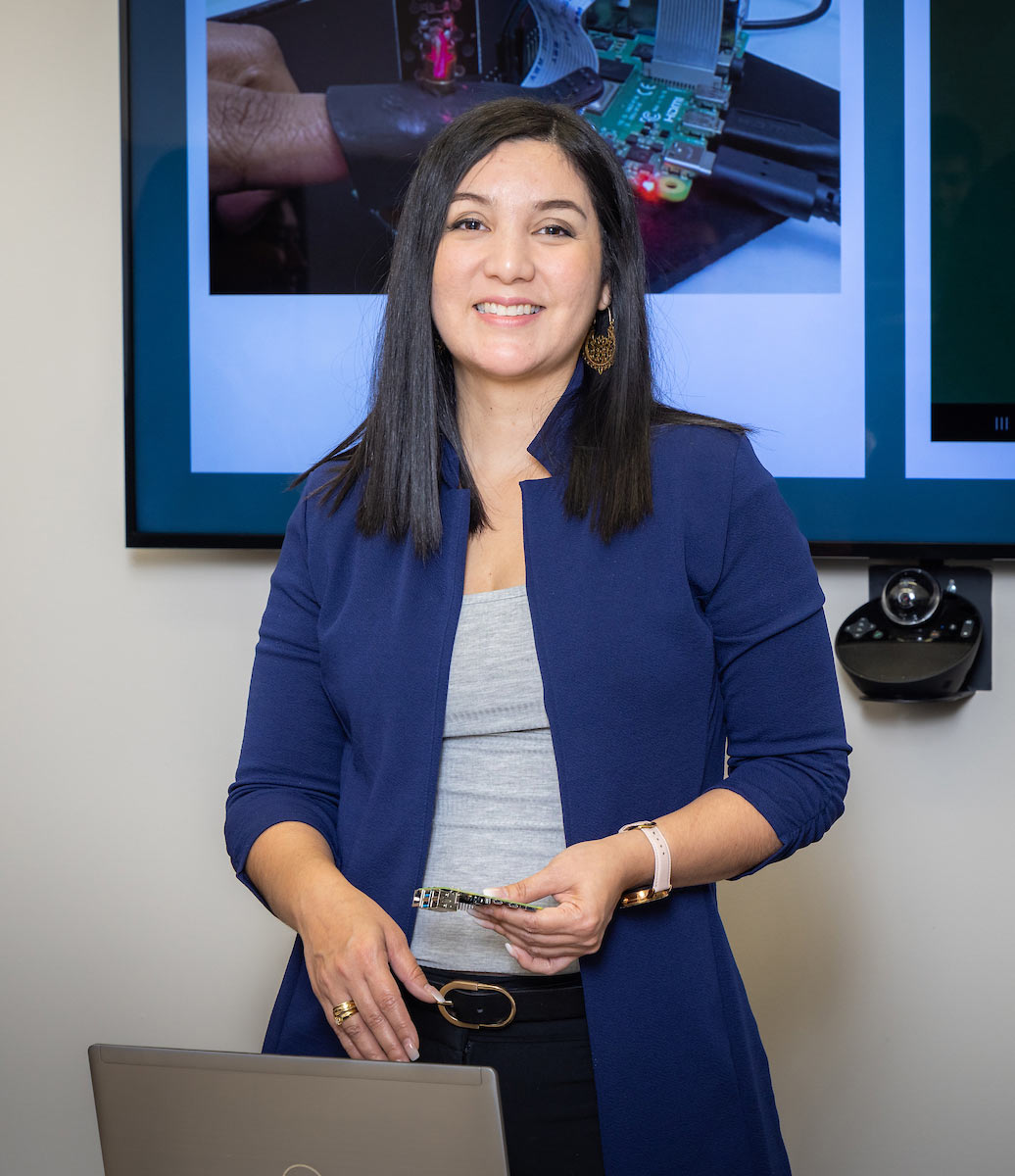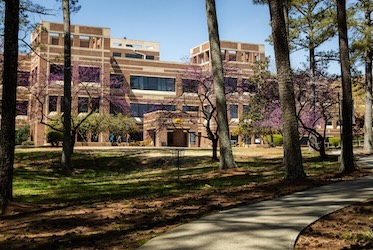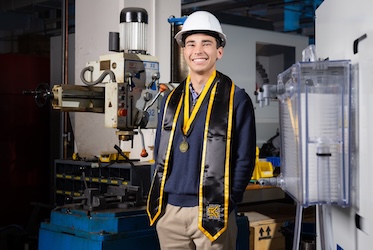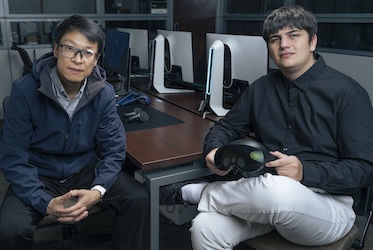

KENNESAW, Ga. | Sep 21, 2022
As a child, Maria Valero witnessed her diabetic father prick his finger several times a day to draw blood and check his glucose levels using an electronic monitor. She was concerned about the invasive and painful process but was also curious about the technology behind the device.

“After watching my father go through that, I wanted to create something less invasive,” said Valero.
The assistant professor of information technology in Kennesaw State’s College of Computing and Software Engineering (CCSE) and director of KSU’s IoT as a Service Research Group is working to improve the glucose monitoring process for the millions of people around the world affected by diabetes.
Using funding from the College and a lot of trial and error, Valero and her team created a non-invasive process that can identify the exact value of blood glucose with 90% accuracy without taking a blood sample. The GlucoCheck process uses light shone through human tissue, in either the ear or finger, and a small camera to capture images on the other side. Valero’s team then uses a model to study the amount of light absorption in those images to determine blood glucose concentration.
“Our pilot study was very successful,” she said. “We are excited about how this device will help people with diabetes, which affects about one in every 10 people in the United States.”
Valero and her team recently filed a provisional patent application with the U.S. Patent and Trademark Office to protect the process they created. Director of Kennesaw State’s Office of Intellectual Property Development Chris Cornelison helped Valero sift through research projects around the world to make sure the GlucoCheck process is unique and patentable.
“The way we gather and output the data is novel, and we will continue to work on ways to improve the glucose estimation model,” Valero said. The team has tested the process on nearly 50 people so far, but before filing a full patent next summer, they will assess how the process works on people with a range of skin pigmentations and skin thickness.
Valero’s students have already created a mobile phone application and are working on connecting GlucoCheck to Amazon’s virtual assistant, Alexa.
“I am very fortunate to have great students who are extremely motivated and bring a wealth of knowledge to this project,” Valero said. “Watching them grow as researchers who want to make a difference in the world using technology is very rewarding.”
According to Paola Spoletini, interim associate dean of CCSE, Valero’s commitment to her research is compounded by her dedication to her students.
“Dr. Valero is passionate about using technology to make a difference in the world, and she is an incredible asset to our College,” Spoletini said. “Not only is she developing cutting-edge technologies, but she also serves as a mentor and role model to her students.”
In addition to her students, Valero has worked closely with Hossain Shahriar, associate professor of information technology, and Katherine Ingram, associate professor of exercise science. Ingram is currently researching gestational diabetes risk, and Shahriar’s research focuses on health information technology, data analytics and cybersecurity. Their paper detailing the pilot study was recently accepted into the Journal of Medical Internet Research, and Valero has used the data to apply for additional funding.
– Abbey O’Brien Barrows
Photos by Judy Pishnery

Kennesaw State University to launch Bachelor of Science in Artificial Intelligence in Fall 2026

Kennesaw State among nation's top universities for online degrees in U.S. News rankings

Discipline and determination drive track and classroom success for graduating student-athlete

Student, faculty researchers explore how AI can improve STEM learning through virtual reality
A leader in innovative teaching and learning, Kennesaw State University offers undergraduate, graduate, and doctoral degrees to its more than 51,000 students. Kennesaw State is a member of the University System of Georgia with 11 academic colleges. The university's vibrant campus culture, diverse population, strong global ties, and entrepreneurial spirit draw students from throughout the country and the world. Kennesaw State is a Carnegie-designated doctoral research institution (R2), placing it among an elite group of only 8 percent of U.S. colleges and universities with an R1 or R2 status. For more information, visit kennesaw.edu.